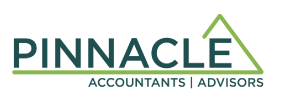Personal Services Business
Is your corporation a personal services business?
If you are the sole individual working in your corporation, you may be carrying on a personal services business (“PSB”). More and more small corporations are being labeled as personal services businesses by Canada Revenue Agency (“CRA”). The results of this can be disastrous.
Personal service business
What defines a personal services business? It comes down to whether an employee-employer relationship would be considered to exist between you and your customer if the corporation were removed from the picture.
What’s the problem with being a personal services business?
At the end of 2011, the rules for PSBs were changed. PSB income is no longer subject to the definition of “active business income”. If CRA determines that you are a personal services business, you will likely have some (potentially significant) tax problems.
You will lose your entitlement to the $500,000 small business deduction. The small business deduction provides a low rate of tax for income under $500,000. The PSB would be subject to tax at the high rate of 38%. Because of some other complicated rules, a dividend will be needed to withdraw the cash from the PSB, increasing the total tax rate to a maximum of 52%. This is higher than the maximum personal tax rate, and so creates a significant penalty to earning income in a personal services business rather than earning it personally.
In addition, many or all of your expenses incurred in the corporation will be disallowed and added back to income. This will create higher taxable income on which the higher rate of tax will be paid.
CRA may also decide to reassess prior years. Generally, when CRA thinks they have a win in one year, they’ll go after other years as well. This could double or triple the negative results to the taxpayer.
In some cases there may also be fines and penalties.
How to avoid being labeled a PSB
Clearly, the penalties for being labeled a PSB are severe. At the root of the issue, there is a common-law question of whether you are an employee or self-employed. If you are self-employed under the law, the threat of being labeled a PSB is minimal. Tests used to determine whether you are an employee or self-employed are:
– The degree of control over duties performed
– The degree to which work provided is integrated with the business of the hirer
– Whether the hirer provides tools or the individual uses his or her own tools
– Whether the individual has a chance of profit and a risk of loss on his or her activities
– The length of the individual’s relationship with the hirer
Are you a PSB?
One scenario where a PSB may exist is a sole-shareholder employee of a corporation providing work to only one hirer, using tools belonging to the hirer, and being paid a wage by the hour.
One scenario where a PSB may not exist would be a sole-shareholder employee of a corporation with multiple contracts during the year, each one less than a year in duration, using his or her own tools, providing quotes on work with the ability to make a profit if completion happens ahead of schedule and incurring a loss if there are time overruns.
You may be somewhere in between these two scenarios. Feel free to contact us for a consultation on potential risks associated with the PSB rules.
Written by: Chris Brien, CA
